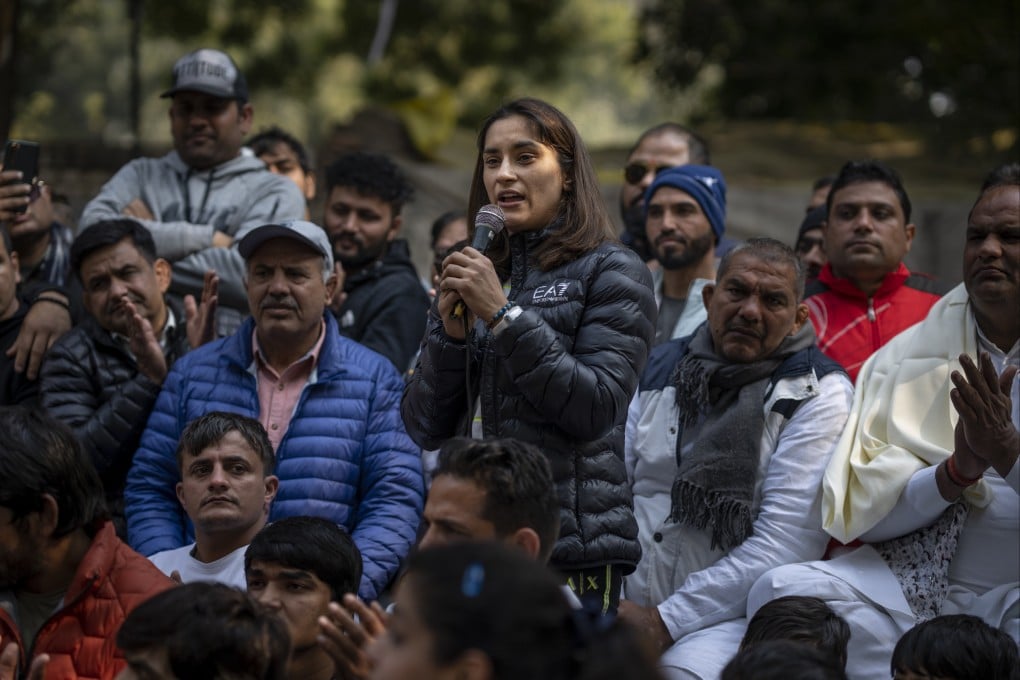Female Indian wrestlers accuse coaches, federation chief of sexual harassment
- A protest led by acclaimed wrestler Vinesh Phogat was called off after federation chief Brij Bhushan Sharan Singh agreed to step down
- Public opinion has been divided, especially given how female Indian wrestlers often have to fight societal, gender stereotypes and sexual harassment

Vinesh Phogat, the first female Indian wrestler to win gold in the Commonwealth and Asian Games, said that although she herself had not been targeted, the sexual exploitation of the 10-20 women had been going on for a decade.
Not only were complaints ignored, she said, women were threatened with death if they spoke out.
Male and female wrestlers who began the sit-in on Wednesday ended it on Saturday after sports minister Anurag Singh Thakur said wrestling federation chief Brij Bhushan Sharan Singh “will step aside and help in carrying out the probe” which would be completed in four weeks.
Singh, who is also an MP of India’s ruling Bharatiya Janata Party, has denied the allegations.
“There has been no incident of sexual harassment. If such a thing has happened, then I will hang myself,” he said.
Sports commentators have noted that most officials in charge of a sport in India are typically closely affiliated with the government of the day.
Phogat, 28, also the only Indian woman wrestler to win multiple medals at the World Wrestling Championships, is also a critic of sexist attitudes that female wrestlers often face in a male-dominated sport.